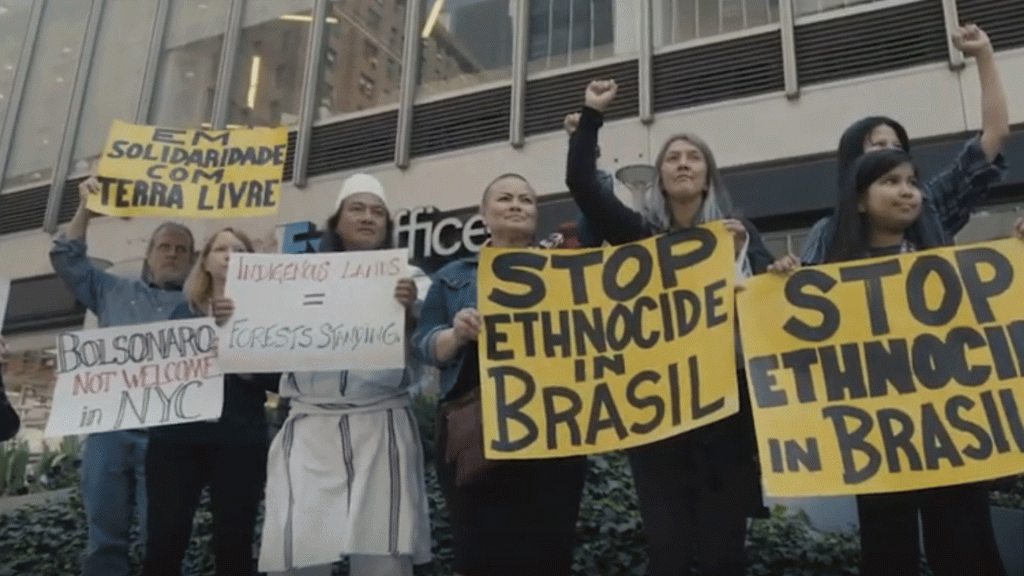
People holding signs demonstrate against the treatment of Indigenous peoples in Brazil. Photo courtesy: Amazon Watch
The protection of Indigenous communities has been front and centre in Brazil this past week, with the country’s President Jair Bolsonaro vetoing provisions of a law on Wednesday that would require the government to provide key components of COVID-19 aid to them.
On the same day, a Brazil Supreme Court judge ordered the government to install checkpoints on tribal lands to protect communities from outsiders — with support from the country’s military, if necessary.
Justice Luis Roberto Barroso also gave Bolsonaro’s government one month to develop a comprehensive plan to provide healthcare to the nearly 900,000 Indigenous people in Brazil, most of whom live in the Amazon region. And also to stop trespassing on Indigenous lands.
Bolsonaro, a far right populist leader, has openly advocated for the assimilation of Indigenous peoples.
He has consistently downplayed the severity of COVID-19 but this past week tested positive himself.
Emilee Gilpin, a Cree-Metis journalist from Ontario who reports for the National Observer, has been in Brazil throughout the pandemic.
On Friday she told APTN National News that in the face of inadequate government support for Indigenous peoples during the pandemic, communities and grassroots organizations have been forced to lead the efforts, including keeping outsiders out of Indigenous territories.
“Government workers, missionaries — there’s an ongoing problem here in Brazil with invasions in Indigenous territories, especially in the Amazon,” she said. “That’s illegal loggers, farmers, miners and hunters.”
Watch the full interview with Emilee Gilpin here:
Emergência Indígena is an organization monitoring Indigenous infections in the country.
According to the group, as of Friday there have been 13,241 infections and 461 deaths in Indigenous communities.
In May, the Councils of the Guarani & Kaiowá Peoples, which represent more than 50,000 people — the second largest Indigenous population in Brazil — issued an emergency plea for help.
“We…are calling for specialised healthcare support for indigenous people, the URGENT fortification of the emergency services which respects the specificities of our People: ambulances, hospital beds, alternatives to isolation in our community, protection for workers and their family contact networks, respirators, and spaces for our dead in the cemeteries,” they wrote in a statement published on the Brazil’s Indigenous People Articulation (APIB) website.
Brazil’s COVID-19 death toll has surpassed 70,000, the world’s second highest total.
-With files from Jamie Pashagumskum









